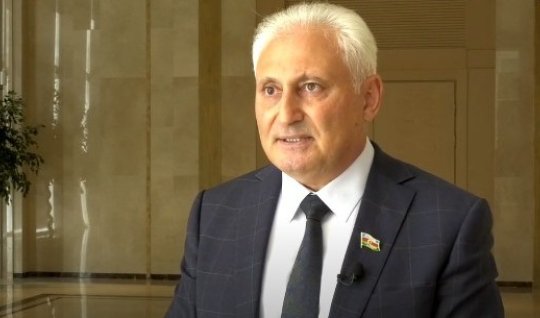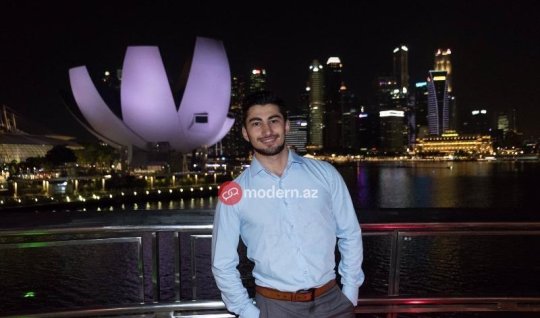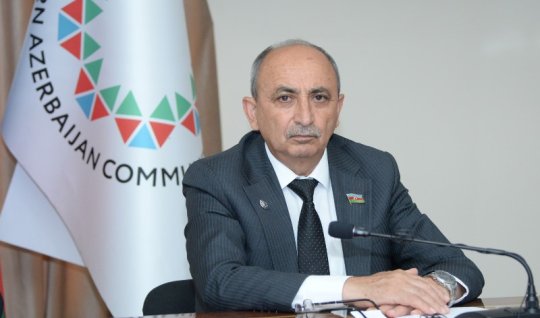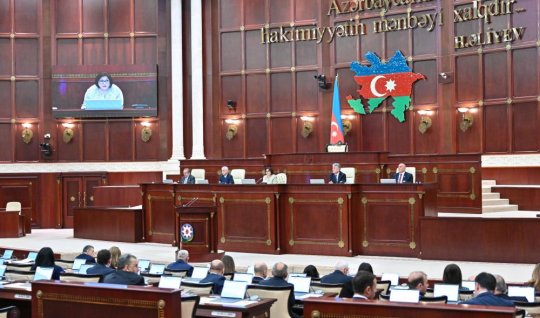"Arayik said that if I meet with Kocharyan, Pashinyan will destroy me"

“By the third day of the war, I understood that we could not win”.
Modern.az reports that the second president of the Republic of Armenia, Robert Kocharyan, stated this in an interview with TV5.
"On the second day of the war, I was in Karabakh. What I saw there convinced me that we would lose this war within just one or two days. I spent two weeks in Karabakh and every day I tried to convince Arayik Harutyunyan, through Arkadi Ghukasyan and Bako Sahakyan, to do everything possible to stop the war. It was clear that we were losing.
I even suggested to Arkadi Ghukasyan and Bako Sahakyan that they meet with Arayik Harutyunyan, even though my feelings towards Arayik are known to everyone. He should not have appeared as “president” in Karabakh, but despite this, I went myself, made a proposal, and had a concrete action plan for the work that needed to be done.
I put forward very concrete proposals regarding the organization of defense and, at the same time, of course, doing everything to stop the war as quickly as possible. Arayik, however, refused, did not want to meet with me, and conveyed this through Bako Sahakyan: "If I meet with Kocharyan, the Prime Minister of Armenia will eat me." These are his exact words, "will eat me." They were less afraid of Azerbaijan during the war than of meeting with me and discussing this issue," Kocharyan said.
Robert Kocharyan said that on the eve of the 44-day war in Karabakh, he did not see normal army management among the Armenian separatists: “It simply did not exist. Because significant changes had been made to the command structure previously, and people unsuitable for war had been appointed to key positions.”
The personnel policy was as follows: he did not trust the army and wanted to fill important positions with people loyal to him. A loyal general or a loyal high-ranking officer does not always possess the skills to win a war. Large-scale personnel changes were taking place, and the sole criterion was loyalty. The army's supply problems were generally weak.
Before the war, the closure of airspace had been announced. But this was absolutely not the case.
One of the most important issues was the disgraceful mobilizations carried out in Armenia. Doing nothing would have been better than doing something. People were gathered, and on the third day, these people found themselves on the front line. They were not placed into existing military units as battalions; instead, new units were created, and they were sent to the front on the third day.
You must ensure combat cohesion... for at least two to three weeks. My relatives were called up to the army; for example, one of my very close relatives found himself on the front line on the second or third day of the war, in a unit where he knew no one. You cannot hastily gather people, for example, form a battalion, and send them to war the next day. By doing so, you are simply putting these people through a meat grinder. At least two weeks of combat solidarity are needed for people to get to know each other, for the commander to understand which commanders are under his command, and what knowledge they possess," the ex-president stated.
Robert Kocharyan emphasized that Nikol Pashinyan was the number one culprit for the defeat in the 44-day war.
“Nikol Pashinyan stated that “Artsakh” is a burden for Armenia, and by renouncing it, we gained independence.
According to him, it turns out that if “Artsakh” had remained with us, if 5,000 people had not died and more than 11,000 people had not been wounded, we would have been an unhappy and faded nation that had lost its sovereignty, a people who had reached the height of foolishness in reconciling with their history. He says this.
If mistakes had not been made, there would have been no war. The negotiation process would have concluded with the acceptance of modified versions of the “Madrid Principles.” If Nikol Pashinyan had joined the negotiation process in 2019 and the proposal had been good, it is highly probable that everything would have ended with the signing of such a document," he stated.
Kocharyan noted that Nikol Pashinyan had made no attempt to meet with him regarding the post-2018 negotiation agenda.
"As far as I know, he met with the first president (Ter-Petrosyan-ed.) and then stated that he had heard nothing new. The most perplexing point for me was how Nikol Pashinyan rejected Russia's proposal to end the war on October 18-19.
Azerbaijan agreed, but Nikol Pashinyan refused, even though he knew for certain that the war would be lost, because the General Staff had reported that the army no longer had the resources to continue the war. This report exists. However, he decided to continue the war.
He explained that he made this decision so as not to be called a traitor. This decision cost our people at least 2,500 additional casualties and at least 5,000-6,000 wounded. Is this the action of a leader?" emphasized the second president of Armenia.
A. Gafarli
-
11:36, Bu günHow Mustafa Kemal Pasha BECAME ATATÜRK...
-
11:26, Bu günOur compatriot from the south who brought the tricolor flag to the USSR: "They were surprised in Baku"
-
10:44, Bu günNigeria and Niger qualified for the championship in Baku
-
10:33, Bu günThe message given to the world at the Victory Parade: Azerbaijan is not alone!
-
10:10, Bu günA railway network is being built in the liberated territories - OFFICIAL
-
09:32, Bu gün“Caesar, Alexander, Napoleon, rise, your great one Atatürk is coming!”
-
09:11, Bu gün“The November 9 document was the last opportunity to protect Karabakh” - Kocharyan
-
09:06, Bu gün"Arayik said that if I meet with Kocharyan, Pashinyan will destroy me"
-
08:45, Bu gün“Is 'Hero of the Patriotic War' a high title, or 'National Hero'?”
-
08:30, Bu günTrump Appointed Special Envoy for Belarus
-
9 November 2025, 20:28CHP leader Ilham Aliyev CONGRATULATED
-
9 November 2025, 19:53Polluted air kills 161 people every day
-
9 November 2025, 18:41France, for its debts, 74 billion euros will pay interest
-
9 November 2025, 17:22There will be no coup in the country again - Japarov
-
9 November 2025, 15:38Iran wants to reconcile Pakistan and Afghanistan
-
9 November 2025, 12:54In Portugal, massive PROTESTS
-
9 November 2025, 12:40Withdrawal from Afghanistan was a major defeat - Stoltenberg
-
9 November 2025, 10:47Arab countries the US plan REJECTED
-
9 November 2025, 08:29Syrian President went to the USA
-
9 November 2025, 00:2150 people poisoned by carbon monoxide in Mashhad
-
8 November 2025, 21:14Azerbaijan does not plan to send troops to Gaza
-
8 November 2025, 18:57Tehran is left without water
-
8 November 2025, 18:20National Hero of Azerbaijan lives in a nursing home - PHOTOS
-
8 November 2025, 16:53Are borders with Armenia opening? - Exclusive statement from the Minister
-
8 November 2025, 16:10Scientists were the first - They compiled a brain atlas
-
8 November 2025, 15:30Turkey's F-16s in a military parade
-
8 November 2025, 15:09Turkey's "Bayraktar Akıncı" UAV over Baku
-
8 November 2025, 14:10May our victory be blessed - Erdoğan
-
8 November 2025, 12:56Erdogan arrived in Azerbaijan - PHOTO
-
8 November 2025, 11:52Horrific fire at a factory in Turkey - 6 people died
























































